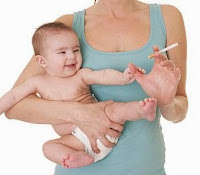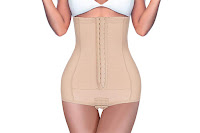Smoking after childbirth and postpartum may cause some
problems with pregnancy and baby.
Do
substances in cigarettes pass into milk?
It is a fact that smoker mothers have failed to breastfeed
their babies, are breastfeeding for a shorter period of time, and their milk
quantity and milk quality are worse. Smoking mothers stop breastfeeding earlier
and switch to additional foods. Apart from that, a curious issue is whether the
harmful substances and nicotine in cigarettes pass into breast milk. In the
researches, nicotine and other substances were found in the milk of smoker
mothers. Therefore, breastfeeding mothers smoking is harmful for the baby and
harmful substances in the cigarette pass to the baby. Restlessness, vomiting,
colic pain are more common in babies of mothers who smoke during breastfeeding.
Smoking can change the taste and smell of breast milk, so some babies refuse to
suck.
Mothers who smoke while breastfeeding are not recommended to
give baby food or instant milk instead of breast milk. Because depriving the
baby of the benefits of breast milk will do her more harm. So, breastfeeding
while smoking is considered less harmful than feeding formula formula.
Recommendations
to mothers who smoke while breastfeeding:
- The more time after smoking, the lesser the amount of
nicotine in milk. Therefore, the baby should not be breastfed immediately after
smoking. In one study, the half-life of nicotine in breast milk was found to be
97 minutes. Breastfeeding the baby at least 1-2 hours after smoking will make
the baby less harmful.
- Do not smoke in the same environment with your baby at home
and in the car, do not allow others to smoke next to the baby. Passive smoking
is extremely harmful for the baby and respiratory diseases and more serious
problems can occur.
- Try to smoke as few cigarettes as possible during the day.
- Smoking while breastfeeding is a behavior that should never
be done. Meanwhile, the baby will be exposed to very high levels of harmful
substances, both through breast milk and from smoke in the air.
- Ventilate your smoking room and your car.
- Contact the smoking cessation hotlines.

















